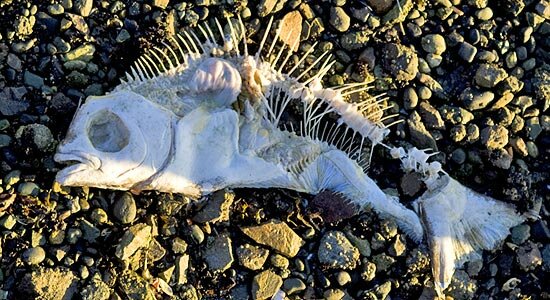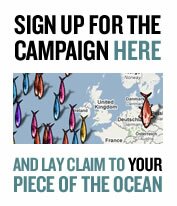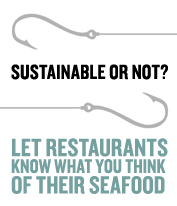The Science
Overfishing in 2009, by Charles Clover
Overfishing was recognised as one of the world's greatest and most immediate environmental problems in 2002, when it was first demonstrated that global catches of wild fish had peaked around 1989 and have since been in decline.

Globally, some 75 per cent of wild marine fish are now said to be either fully-exploited or overfished, according to the United Nations' Food and Agriculture Organisation (UN FAO). That means these species require conservation and management in order to survive in their present numbers - which they rarely receive.
The number of fish stocks recorded as fully or overfished worldwide is expected to increase significantly this year when the latest figures are published by the UN FAO.
The fish species in the worst shape are highly migratory oceanic sharks; fish that are exploited fully or partially on the high seas, such as the larger tunas; and shared stocks, such as the Patagonian toothfish or Chilean sea bass.
Aquaculture, or fish farming, now provides almost half of all the fish consumed by humans. In the West – but not in Asia - it is mostly carnivorous fish that are farmed. The growth of aquaculture has slowed as stocks of small fish used to feed larger fish are themselves overfished.
The North East Atlantic, which includes EU waters, is one of the worst areas in the world for overfishing – along with the western Indian Ocean and the North West Pacific, according to the UN FAO.
In European waters, some 80 per cent of stocks are recorded as overfished, according to the European Commission.
In UK waters, stocks of palatable fish, such as cod, have been reduced to less than 10 per cent of what they were 100 years ago. This compares with a global average of 25 per cent of stocks actively overfished.
The nation with the least overfishing problem is New Zealand, where only 15 percent of stocks are recorded as overfished. The problem is that in Europe some 50 per cent of the quotas set by politicians are higher than scientists say are sustainable.
The EU was instrumental in arguing for a quota of 22,000 tons of valuable bluefin tuna for next year at a meeting of the International Commission for the Conservation of Atlantic Tunas in Marrakech in November, even though scientists recommended a quota of only 15,000 tons to avert stock collapse.
The United States had called for a total ban on catching bluefin in the Mediterranean to allow stocks to recover from rampant overfishing, both illegal and legal.
The bleak future predicted for the sea by some scientists already exists in British waters, where in places overfishing has resulted in a simplified ecosystem vulnerable to total collapse.
In the Firth of Clyde, near Glasgow, the cod, haddock, saithe, brill and whiting have all been overfished. All there remains for fishermen to catch is Norway lobster, also known as langoustine or scampi.
In the absence of cod, which eat diseased Norway lobsters, some 70 per cent of Norway lobsters are now afflicted by the parasite-borne ailment known as smoking crab disease.
Prospects for the Clyde fishermen are not good.




